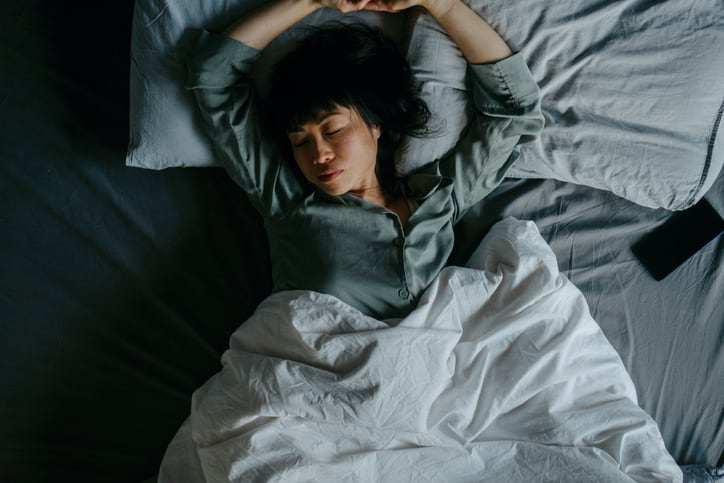The study was conducted by researchers from the College of Food Science and Technology at Henan University of Technology and the Department of Food Quality and Safety, at Shanghai Business School.
Findings were recently published in Scientific Reports.
A total of 106 subjects between 19 and 45 years old and were experiencing moderate sleep disturbance with Pittsburgh Sleep Quality Index (PSQI) scores between seven and 17 took part in the study.
They were randomised into taking either the probiotic or placebo made of maltodextrin.
The probiotic strain used, BLa80, was provided by China’s probiotic supplier firm Wecare Probiotics Co. Ltd.
A daily dose of 10bn CFU probiotics was taken by the intervention group during the eight-week intervention.
Changes in their sleep quality were assessed by answering the PSQI survey, which measures the participants’ perception of their sleep quality, sleep latency, sleep duration, sleep disturbances, and daytime dysfunction etc.
The higher the index, the poorer the sleep quality. A score of over seven indicates significant sleep issues.
The Insomnia Severity Index (ISI) was also used as a secondary measure to assess sleep quality nuances.
Aside from questionnaires, faecal samples were also taken to measure any changes in the gut microbiota.
Before and after the intervention, both groups saw an overall downward trend in their PSQI and ISI scores before and after intervention. The level of decline was also statistically significant for PSQI scores.
When comparing between the two groups, probiotics supplementation did not lead to significant improvements in total PSQI scores.
It did, however, significantly improved two subsets of PSQI - namely sleep onset time and daytime dysfunction.
This means that participants who took probiotics reported a significant reduction in the time to fall asleep and a significant reduction in dysfunction of feeling sleepy or low energy during the day.
Improvements in gut microbiota diversity
The intervention group also reported a significant improvement in beta-diversity of the gut microbiota.
Specifically, probiotics use had increased the relative abundance of Bifidobacterium, Fusicatenbacter, and Parabacteroides.
“BLa80 intervention notably increased beta diversity and reduced the Proteobacteria population at the phylum level, aligning with evidence that dysbiosis in the gut microbiome may be linked to psychiatric disorders.
“This suggests potential therapeutic and preventative applications for gut microbiome modulation,” said the researchers, citing findings from Jiang et al.
Published in 2015, the study reported elevated levels of Proteobacteria and Enterobacteriaceae in patients with depressive disorders compared to healthy controls, highlighting the association between microbial imbalances and mental health.
GABA production seen in in-vitro study
In vitro experiment conducted via liquid chromatography also showed the BLa80 strain’s capacity in producing gamma-aminobutyric acid (GABA).
Results showed that GABA production peaked at about the 5.4th minute, with a production amount of 5 µg/ml.
Based on these findings, the researchers said there was potential to optimise the fermentation medium or employ faecal co-culture techniques to further assess GABA production of the BLa80 probiotic strain.
“The ability of BLa80 to synthesise GABA is not only pertinent to its impact on host health but also opens new avenues for treating neuropsychiatric disorders.
“Consequently, the GABA synthesising ability of BLa80 may be a significant aspect of its probiotic potential, offering speculate insights into innovative strategies for managing sleep disorders and enhancing mental health,” said the researchers.
Source: Scientific Reports
A double blinded randomized placebo trial of Bifidobacterium animalis subsp. lactis BLa80 on sleep quality and gut microbiota in healthy adults
https://doi.org/10.1038/s41598-025-95208-2
Authors: Liu, Y., Chen, Y., Zhang, Q. et al.





